Baseline Skin Study help_outline The Baseline Skin Study is a collaboration between Verily and Pfizer.
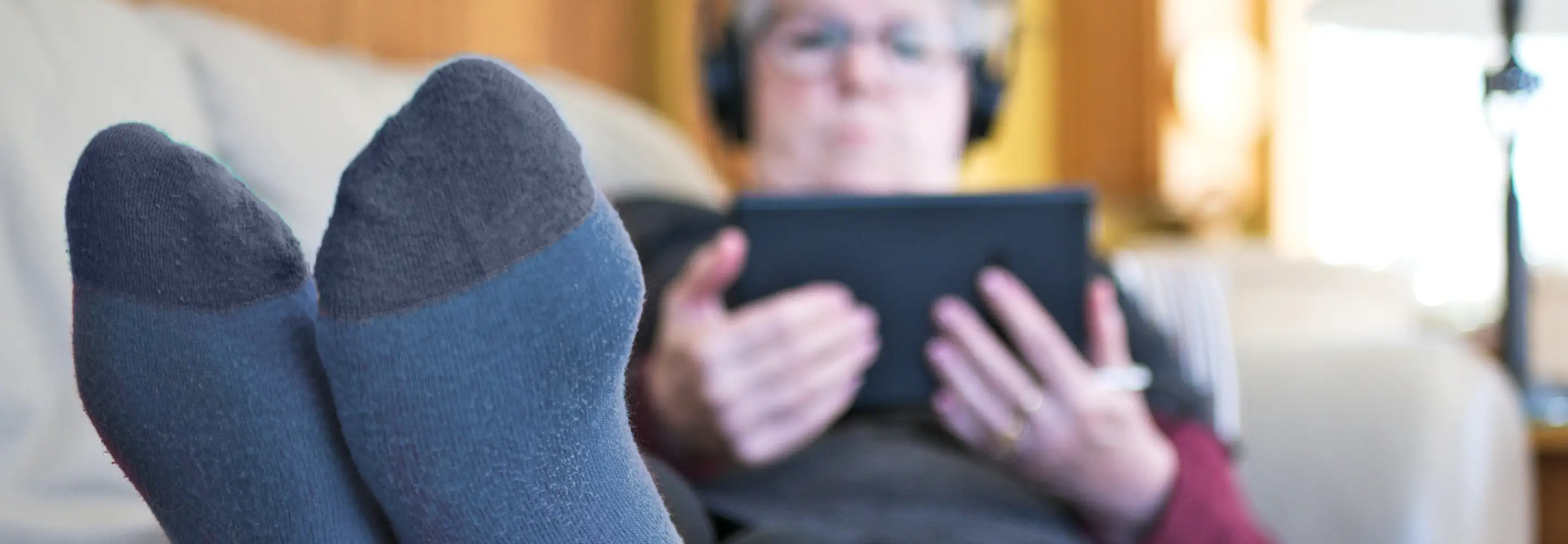
Baseline Skin Study help_outline The Baseline Skin Study is a collaboration between Verily and Pfizer.
A skin study you can do from home
Have red, itchy, swollen legs? Find out if you have common symptoms of Stasis Dermatitis help_outline Stasis Dermatitis is inflammation of the skin on the lower legs due to high blood pressure in the veins of the legs. Symptoms may include a rash and itchy, red, swollen legs. and if you are eligible to join our clinical study.
Working together to advance research for Stasis Dermatitis.


What to expect
Determine eligibility (up to 4 weeks)

15 min
Apply online to find out if the Baseline Skin Study is a good match for you
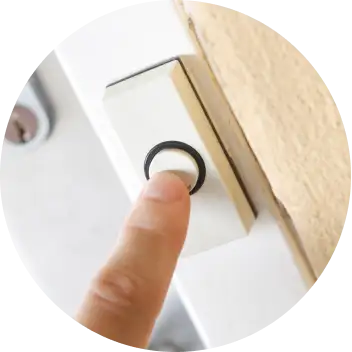
1-1.5 hours
We'll schedule a free in-home screening to determine eligibility
The 10-week treatment and follow-up
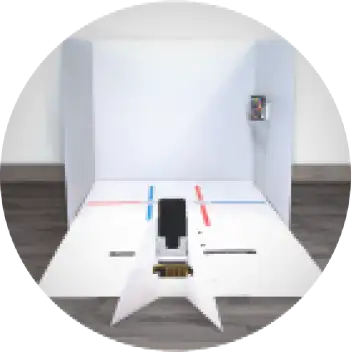
1 hour
In-home training and Photo Studio setup
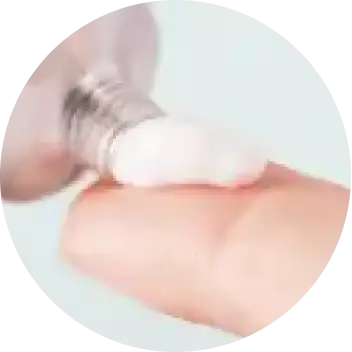
2x daily
Investigational topical treatment

1x daily
Complete study activities, including surveys on a smartphone
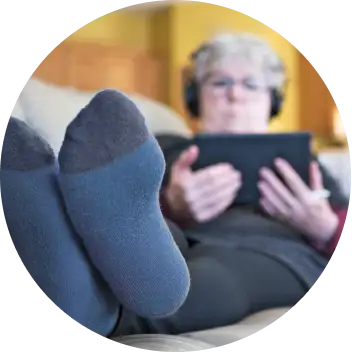
Weekly
Video visit with a study coach and submission photo

1 - 1.5 hours
In-home visit when you end study treatment

30 min
Video follow-up visit 4 weeks after you end treatment
What you'll receive
In addition to contributing to research for those with Stasis Dermatitis help_outlineStasis Dermatitis is inflammation of the skin on the lower legs due to high blood pressure in the veins of the legs. Symptoms may include a rash and itchy, red, swollen legs. , you'll receive:

Use of a smartphone and/or tablet for photography during study
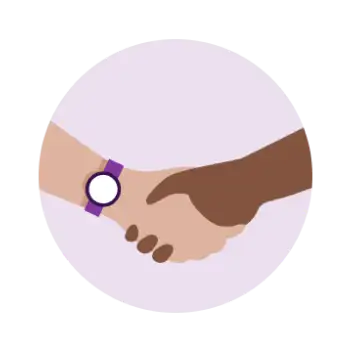
Dedicated study coach to answer questions throughout the study

Up to $300 for your time
Study FAQs
About Stasis Dermatitis
Stasis Dermatitis is inflammation of the skin on the lower legs caused by venous insufficiency or venous hypertension. Symptoms include a rash- itchy, red, swollen lower legs. This condition is also referred to as Stasis Eczema, Gravitational Eczema, Venous Eczema, Varicose Eczema or Hypostatic Eczema.
If you do not have a formal diagnosis from your doctor, we can help you understand if you have common symptoms of Stasis Dermatitis. Symptoms often include swollen, itchy red lower legs. Stasis Dermatitis is also referred to as Stasis Eczema, Gravitational Eczema, Venous Eczema, Varicose Eczema or Hypostatic Eczema. Click here to find out more.
About the Baseline Skin Study
Pfizer is the Sponsor of this study. The Baseline Skin Study is being conducted by Pfizer and Verily, working together to advance research for Stasis Dermatitis.
If you have Stasis Dermatitis, and you are eligible and agree to participate in the study you will participate in various study activities, such as a screening visit. eligibility review, and an investigational treatment period, over the course of about 3 months. This includes a 6-week investigational treatment period where participants apply the study ointment 2x per day, send weekly photos of their lower legs and have a weekly video visit with a study coach. The study will conclude with an in-home visit when you end study treatment and a video follow-up visit 4 weeks later. We will provide all equipment needed to participate in the study. All instructions and details about the study will be provided to you during the consent process and in the study consent document.
As a reminder, your participation in Project Baseline does not require you to participate in this separate Baseline Skin Study.
The study will last about 14 weeks, including 6 weeks using the study ointment and 4 weeks of follow-up.
Since compression stockings are often recommended for those suffering from Stasis Dermatitis, we ask that if you are using compression stockings today, that you continue to wear them during the study. That said, wearing compression stockings is not required for this study.
An at-home (or remote) clinical study is one in which you can fully participate at your home. This means that while a visiting clinician will be coming to your home, there is no need for you to visit a doctor’s office, lab or hospital. We will deliver any materials you may need to participate, and you’ll be able to mail items back to us that need to be returned in the regular mail.
During the at-home study visits, the visiting clinician will wear appropriate personal protective equipment (PPE), aligned with CDC guidelines, and will also provide you with a mask.
If you are eligible and choose to participate in the Baseline Skin Study, the study ointment will be shipped via courier from a central pharmacy via a no contact system.
All of the equipment provided for you to use during the study will be cleaned prior to the visiting clinician bringing it to you during the at home visits.
You will be provided with a Camera Phone to take 4 photos of your legs every week and 1 picture of your hands at the beginning of the study. You'll also get a compact Photo Studio for your home to ensure the images are high-quality.
During your screening visit, a visiting clinician will set up the Photo Studio with you and walk you through how to take your photos, step by step. The photo process should only take about 15 minutes per week.
A comprehensive list of risks and discomforts will be provided to you in the study consent document.
As a Baseline Skin Study participant, you receive:
- All of the equipment and materials you need to complete your participation in the study. You’ll also get in-person training on how to use them.
- A dedicated study coach to answer your questions
- Up to $300 for your time
The investigational study treatment is a topical ointment (which will contain either active or inactive ingredients). The purpose of the Baseline Skin Study is to investigate the safety and efficacy of this topical ointment in adults with Stasis Dermatitis.